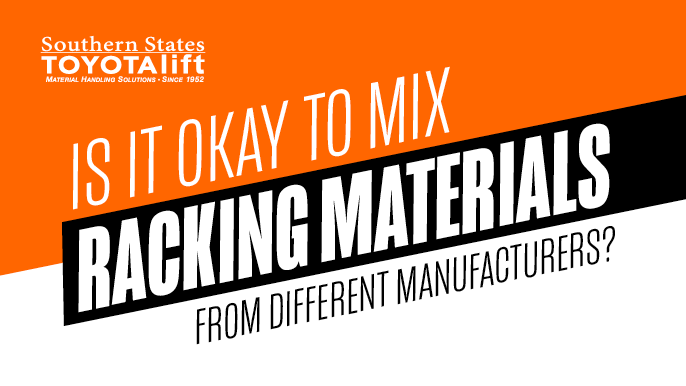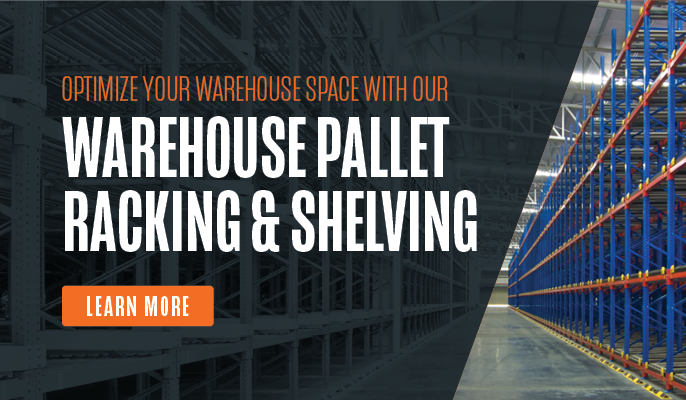Is It Okay To Mix Racking Materials From Different Manufacturers?
by Brian Reaves, on Nov 24, 2021 3:30:00 PM
 As the global supply chain issues continue into the 2021 holidays, warehouses are feeling the squeeze too. Due to international shortages of steel and increased demand for materials, pallet racking is in short supply. While it may be tempting or seem necessary to mix racking from different manufacturers, here’s what you need to know first and why you probably should not mix and match materials most of the time.
As the global supply chain issues continue into the 2021 holidays, warehouses are feeling the squeeze too. Due to international shortages of steel and increased demand for materials, pallet racking is in short supply. While it may be tempting or seem necessary to mix racking from different manufacturers, here’s what you need to know first and why you probably should not mix and match materials most of the time.
Why You Typically Shouldn’t Mix Racking Materials
When you're mixing your racking manufacturers due to convenience or necessity, you could be putting your people and your business at risk.
Audit Concerns
Southern States Toyotalift recommends that you DO NOT mix racking manufacturers due to OSHA audit concerns. Local building codes and fire codes have strict compliance guidelines for warehouse racking, and variables can put you at risk of expensive and time-consuming audits. Your insurance company can also have requirements related to your racking’s configuration, steel gauge, and more - implementing something new that is not aligned to your original agreements can have significant impacts on your policy.
Documentation and Liability Issues
Along with audit concerns, you have to consider your liability. If you lack the original manufacturer’s configurations and documentation, your racking may not be compliant with their agreed-upon use. Activating something for business ease without a correction from the original manufacturer is a dangerous approach to essential warehouse components. If you’ve modified your racking configurations without the manufacturer’s engineer’s approval, the liability of the rack failure will fall back on the business and its owner.
When It’s Okay To Mix Manufacturer Racking Materials
While mixing and matching, in general, is not a great business idea, it is sometimes necessary due to costs, availability, and speed of expansions and reconfigurations. If your business is negatively affected due to delays, mixing and matching might be the way to go. You should only proceed if:
- You are working with an expert warehouse configuration engineer; and
- The racking specifications are in line with Rack Manufacturers Institute (RMI)’s standards
The right pallet racking engineer will accommodate the physics of storing thousands of pounds of product on your racks, ensuring it’s safe and effective. At SST, we advise that you never mix upright and load beams from different manufacturers due to the many variables that can affect their stability and safety.
If you need warehouse configuration expertise, Southern States Toyotalift is here to help. Our team offers warehouse consulting and design services to make your workspace safer and more productive. Contact us online or in one of our locations:
FLORIDA
Jacksonville
Ocala
Orlando
Tampa
Winter Haven
GEORGIA
Albany
Macon
Columbus
Valdosta
Further Reading:
What to Expect During an OSHA Inspection
Need More Warehouse Space? Don't Move, Do This First
Top 10 OSHA Violations of 2020









